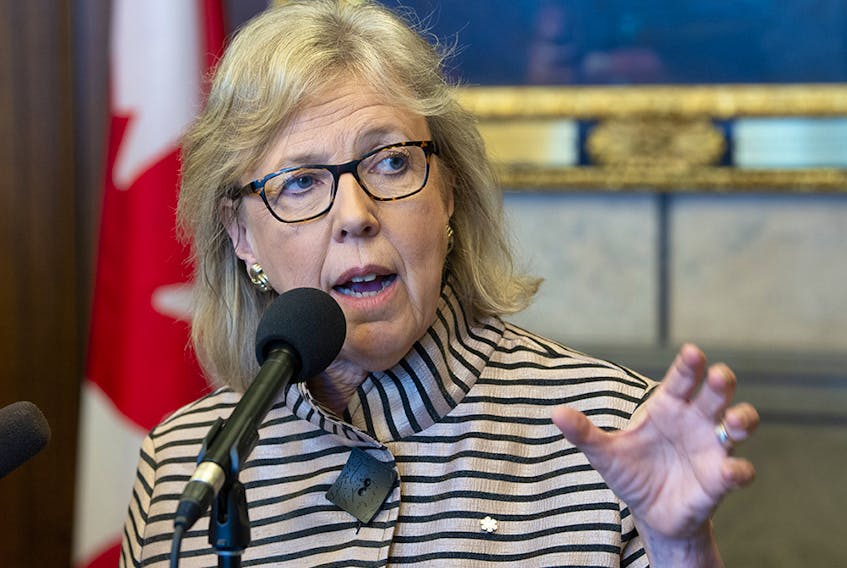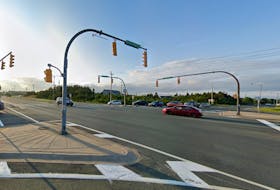ST. JOHN'S, N.L. — The working plan to keep power rates from overwhelming Newfoundlanders and Labradorians as the Muskrat Falls power plant comes online includes a $200-million-a-year contribution, in some form, from the federal government.
It has yet to be locked down.
Heading into the federal election, the question is: will there be related campaign promises?
The Green Party isn’t making any specific commitment. Party leader Elizabeth May told The Telegram the Greens would work with the province to try to keep power rates affordable.
“We are costing our whole platform and it’s right now before the Parliamentary Budget Office. We’ve already put a lot of expensive items into our platform, like pharmacare, like abolishing tuition, making sure that no one has student debt, working on affordable housing. I think we want to be engaged in that conversation, and make sure that the ratepayers of Newfoundland and Labrador don’t pay for the mistakes of people who should be held accountable,” she said.
“What I’m saying is I’m wide open to figuring out how we do it, but since our platform is currently being reviewed by the Parliamentary Budget Office, if I find we have an extra $200 million we haven’t spent — and it’s not a facetious thing, we are a fiscally responsible party — we want to make sure the promises we’ve made are promises we can keep within a fiscal framework where we know where the revenue comes from, because we have to significantly improve, expand, some spending programs, social programs, and we have to finance a transition away from fossil fuels and protect jobs for workers in oil and gas,” she said.
“So when you take all of that, I don’t know yet if when we finish, when the Parliamentary Budget Office finishes looking at all of our numbers, I don’t know if I have room to say, ‘Oh yeah, we can tack on that to help Newfoundland and Labrador,’ but I certainly want to be part of the conversation and see how we can help.”
May is in Newfoundland and Labrador this week. There was a town hall in Carbonear, and a meet and greet in St. John’s with Green Party candidate Greg Malone, and she was one of the speakers at a public meeting on Tuesday night in St. John’s — part of the Muskrat Falls Inquiry.
At the podium, she highlighted the fears of methylmercury (to date, there are no consumption advisories, with full flooding imminent) and said the federal government became a cheerleader for a power project that financially “made no sense.”
“It’s a dreadful, terrible waste and it puts this province at risk of bankruptcy,” she told the audience. “As a federal politician I’ll always stand with the people of Newfoundland and Labrador, and work to find ways to mitigate the impacts on the day-to-day life of residents of this province from electricity rates that will be sky high from a project that never had a market.”
May later told The Telegram the Greens would not refer to power from a megaproject like the Muskrat Falls hydroelectric project as renewable power or green energy.
“We’ve got much cheaper sources of renewable energy in geothermal and in wind, in solar and in tidal, and we’re not pursuing them because a lot of our big utilities know how to build dams and they want to just continue to do it, but it’s not economic and it certainly isn’t green,” she said.
She said the party does want to expand the Canadian grid, particularly with new east-west corridors, to more rapidly decarbonize power production in the country.
A next step after dealing with fossil fuels in power production would be to increase electrification of buildings and transportation, she said, and promote more energy-efficient construction.
“The reality of it is we don’t have a choice,” May said.
She described it all as a response to the global climate emergency. She said her campaign heading into the fall will require her to communicate climate science in a way that energizes voters and brings about a desire for rapid change.
RELATED









